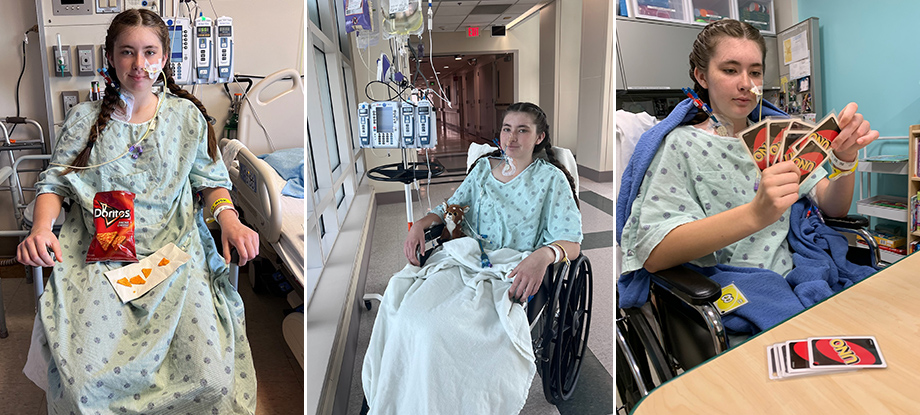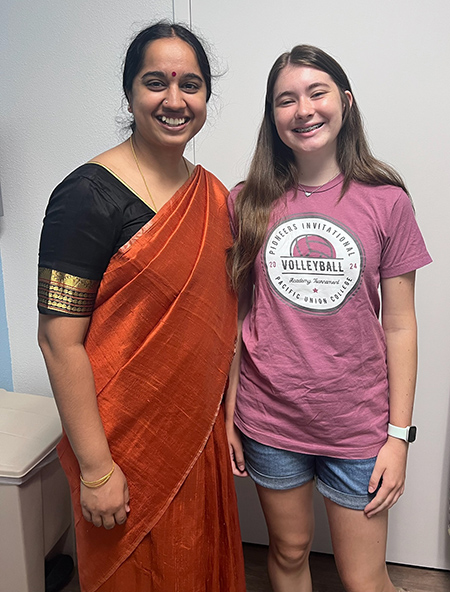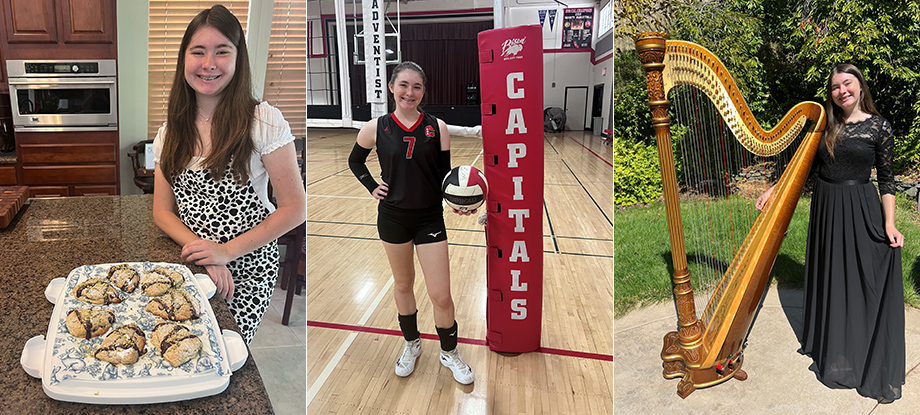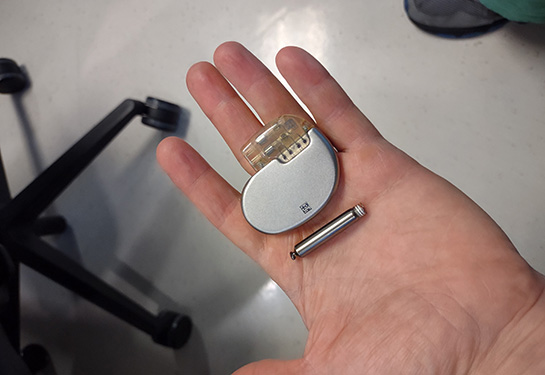Teen mysteriously loses mobility after common cold
UC Davis Children’s Hospital team provides treatment that fully restores movement
Fifteen-year-old Ryleigh Dexter showed typical symptoms of a common cold: an uncomfortable sore throat, a cough and also a fever that reached 102. But once she seemed to be getting better, she began suddenly experiencing problems with her mobility.
She couldn’t pluck the strings on her harp the way she normally would, because she lost coordination in her hands. When she stood up and started to walk, she lost her balance. The next day, she couldn’t sit up, stand or walk.
Her mother rushed her to a local emergency room on this worrisome day last May. They ran tests and transferred her to UC Davis Children’s Hospital for its expertise in pediatric neurology.

Ryleigh was diagnosed with a neurological condition called acute cerebellar ataxia, which is marked by the sudden inability to coordinate muscle movement. This can be caused by a bacterial or viral infection and can occur during or soon after an acute infection, such as a cold.
In Ryleigh’s case, the bacteria that caused her condition was Mycoplasma pneumoniae (also known as walking pneumonia).
A severe infection that surprisingly affects movement
“She essentially lost function in her cerebellum, the part of the brain responsible for coordinating movement and balance. Her motor skills and coordination were down to almost nothing,” said Elizabeth Dexter, Ryleigh’s mother, who is a nurse. “Her speech was also affected. It was difficult to understand what she was saying.”

Acute cerebellar ataxia is more common in children and less common among teens, said Vaishnavi Vaidyanathan, M.D., the UC Davis pediatric neuroimmunologist who cared for Ryleigh in the hospital.
“What was really unusual about Ryleigh's case was how severe it was. Acute cerebellar ataxia usually goes away without any intervention,” Vaidyanathan said. “If she hadn't been treated, she would have likely had progressively worse symptoms, more than what she had, and likely residual deficits even after she had recovered.”
Additional workup leads to the right treatment
Ryleigh underwent testing at UC Davis Children’s Hospital, including a lumbar puncture, to rule out meningitis and encephalitis. This helped doctors decide her course of treatment.
She received steroids, then therapeutic plasma exchange, an intervention that removed and replaced the plasma in her blood.
Lastly, she had intravenous immunoglobulin (IVIG), a treatment that infused immune-supporting antibodies into her blood.
It proved to be a winning combination.
The family was thrilled when they saw positive changes in Ryleigh’s condition after only three days of treatment.
As Ryleigh worked to regain her mobility through daily physical, occupational and speech therapy, she and her family received attentive and compassionate care during her three-week hospital stay.
“Everyone was so wonderful, from our doctors and nurses to our therapists and child life specialists. We did make a few requests of the care team, and they were very good at listening and accommodating our requests,” Elizabeth Dexter said.

Looking at Ryleigh these days, it’s hard to believe she had lost her mobility only a few months ago. She is back at school full-time as a sophomore, playing varsity volleyball. She has resumed practicing her harp. She recently returned to the pediatric neurology clinic for a follow-up appointment, four months after her hospitalization. Her doctor was impressed with Ryleigh’s recovery.
The visit felt like a happy reunion, Vaidyanathan said.
“I was so excited to see her and hear about how well she is doing. It was literally day and night difference,” Vaidyanathan said. “The last time I had seen her in the hospital, she was struggling with tasks that we take for granted, like talking, eating and walking. The fact that she was back to her regular activities was amazing to see!”



